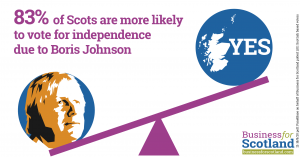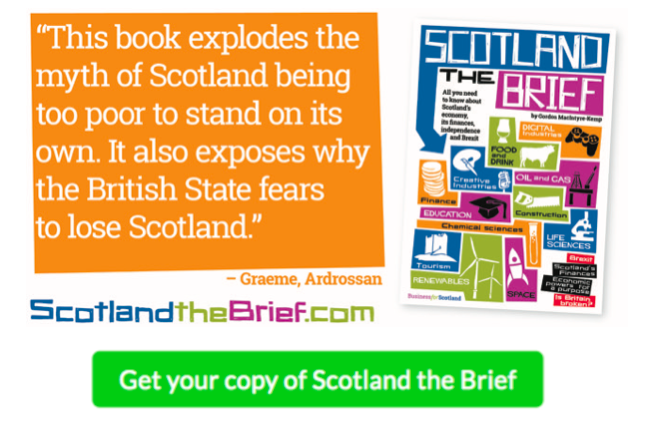THE timing of the second independence referendum has been hotly contested for months but recent developments suggest that support is growing for a poll to be held before the year is out.
The SNP’s recently published roadmap to independence commits to a referendum this year … if the pandemic is over. If the pandemic delays the poll it is expected to be held in the first half of 2022.
Here are five reasons why indyref2 could – pandemic permitting – be held in 2021.
1: Scottish Secretary of State Alister Jack is wrong
Mr Jack launched a desperate bid to stop the momentum for independence in a weekend interview in which he restated the Westminster line that holding a second independence referendum without a Section 30 agreement ‘’granted’’ by the UK government would be illegal.
In fact there is no evidence to prove that statement.
Certainly the SNP’s roadmap to independence explicitly rejects that argument. It promises a ‘’legal referendum’’ after the pandemic is over, even if Westminster refuses to pass a Section 30 agreement.
SNP president Michael Russell said at the weekend that the referendum could be held before Christmas.
Law lecturer and Sunday National columnist Andrew Tickell yesterday argued that the legality issue is unlikely to be resolved until we are actually in the position of the referendum being called. Westminster then would have to either accept it or challenge it legally.
The Scottish Secretary seems unaware of the likely effect of continuing to tell Scots that they can’t do something which has democratic backing
Mr Tickell rejects the suggestion that the Scotland Act expressly rules out the Scottish parliament’s ability to call a referendum legally. He refers to Lord Mackay of Drumadoon, who in the 1990s argued ‘’it would be perfectly possible to construct a respectable legal argument that it was within the legislative competence of the Scottish parliament to pass an Act of Parliament authorising the executive to hold a referendum on the issue of whether or not those who voted in Scotland wished Scotland to be separate from the UK.’’
Alister Jack yesterday dismissed such arguments, wheeling out yet again the Tory insistence that this was ‘’not the time’’ and that the referendum was a ‘’once in a generation’’ event. The Scottish Secretary seems unaware of the likely effect of continuing to tell Scots that they can’t do something which has democratic backing.
This collaboration between Believe in Scotland and The National newspaper is focused squarely on convincing wavering voters to join the Yes camp.
It asks Yes supporters to nominate one or more friends or acquaintances who could be persuaded to vote yes if they had the information to allay specific fears.
It has the potential to be a real game-changer for the independence movement’s ambition to reach out to those voters willing to embrace independence if their questions are properly answered.
Those nominated will receive information on these and other subjects from Believe in Scotland. Thousands have already signed up to the challenge and many more are expected to do so in the near future.
It has the potential to be a real game-changer for the independence movement’s ambition to reach out to those voters willing to embrace independence if their questions are properly answered.
The challenge will not only encourage support for a second independence referendum but increases the chances of the Yes side winning it.
3: Growing support for indyref 2 from other UK nations
A recent editorial in the Irish Times backed a second independence referendum in Scotland and said a Westminster block on the poll was ‘’unacceptable logic’’.
It added: ”International law on the right to self determination is evolving. It recognises the entitlement of substantial national entities to secede and requires central governments to negotiate in good faith when such aspirations are clearly manifest.
‘’Whatever the merits of that, however, the issue will not go away and Westminster would be better advised to engage constructively and imaginatively on the nature of Scotland’s place within the UK. Avoidance is not a sustainable strategy.”
Meanwhile support for Welsh independence has been described as ‘’unprecedented’’. A recent YouGov opinion poll showed that around a third of the population supported independence (when the don’t knows were taken out).
4: Boris Johnson cant save the union
The radio station Classic FM broadcast an item on the day of the Prime Minister’s trip to Scotland last week asking Glaswegians for their opinion of the trip.
Unsurprisingly most of those interviewed had some choice words to describe Boris Johnson himself and the fact that he was making the trip in breach of travel restrictions imposed because of the pandemic.
It’s a proven fact that Boris Johnson is unpopular in Scotland and that his every utterance drives up support of independence. Yet the Conservative Party persists in believing he is much loved.
That’s hard to square with Mr Johnson’s dismissal of the constitutional future supported by the majority of Scots in 20 consecutive opinion polls as being ‘’irrelevant’’.
Michael Gove, the Cabinet Minister responsible for orchestrating the UK Government’s response to growing support for independence, said last week it was essential that the Prime Minister came to Scotland and that he was a ‘’huge asset to the country’’. The longer the Tories continue to believe that the better it is for independence supporters.
5: The Labour Party
The Labour Party is of course nowhere near the force it once was in Scottish politics. However if it were to support a second independence referendum it would certainly bring some party members with it.
One of the two contenders for the Labour leadership in Scotland, Monica Lennon, seems to be willing to shift its stance on indyref2. Asked about the subject earlier this month she said: ‘’I don’t believe in Scottish independence but I do understand people may have frustrations. Things are not settled and I’m not in politics to tell people what they can’t have. I’ll always respect democracy.’’
Last week Ms Lennon seemed to have a dig at former Labour Prime Minister Gordon Brown, who recently joined the independence debate by again putting forward his vision of a federal UK. The Labour leadership contender said the party needed to show Scots they can ‘’do politics differently’’ and could no longer rely on ‘’party grandees getting wheeled out to preach to the nation’’.
The ballot next month will demonstrate whether the party is willing to make the leap.













Here’s one reason why it must happen this year. We only have so many £billions for Westminster to waste on our behalf before we really do become too poor. Let’s get this done before they skin us too deeply.
Saor Alba gu brath
Here’s 23 more! But the over riding reason is at the end!
Benefits – Constitutional
Notice of intent to Westminster.
Sufficient notice to Electoral Commission.
International awareness of process and timeline
Democratic mandate recognised Internationally – Manifesto commitment endorsed by Electorate at Election.
Limit Unionist attempts to change Referendum question / develop other constitutional options.
Develop political and International pressure on Westminster to say ‘YES’ to Referendum.
Benefits – Political
The SNP take control of the political agenda in relation to Independence.
Limit possibility of external game changers.
Allows window for Electorate to assess impact of Brexit without Scotland becoming entangled in the consequences or tied to new deals contrary to our citizens wishes.
Thwart Westminster ‘War Games’ campaign attempting to fan the flames of impatience and division between existing Pro-Independence citizens and organisations.
Limit time for UK Shared Prosperity Fund ‘inducements’ to be developed or to be initiated.
Benefits – Campaign
Energise, Focus and Unify the YES movement.
Timeline identified for campaign planning and delivery.
Eliminate need for alternate approaches from Party or YES movement.
By asserting the date we eliminate the need for, and potential negative impact, delays and distractions arising from, obstructive tactics by either our parliamentarians or YES campaigners.
Campaign in Summer season.
Potentialize and focus the diverse resources, talents and arguments uniquely available at this period to unify and deliver an electrifying YES campaign, widening the movement to appeal to those yet to be convinced.
Benefits – SNP
Maximise SNP 1 & 2 Vote
Reinforce the SNP as the political party to enable Independence avoiding an exodus of members to other organisations diminishing the party and risking the overall YES movement becoming divided and less effective.
Benefits – Citizens of Scotland
Decide immediately post pandemic which constitutional set up is the preferred form of government to best enable both post pandemic recovery and realise Scotland’s future potential.
Have the option to be able to enable full autonomy and fiscal powers to allocate resources and select policies to rebuild post pandemic and for the future.
Have the option to choose to be represented by political parties as supported by the electorate.
Have the option to avoid being locked into Trade Deals and Investment policies that do not work for the benefit of the many people or the planet and will be to our detriment long term.
But! The priority reason for a legal Referendum as soon as possible is to begin the transition to have full responsibility to choose policies and allocation of funds to begin to lift 1 in 5 of our citizens out of poverty in the shortest possible time.